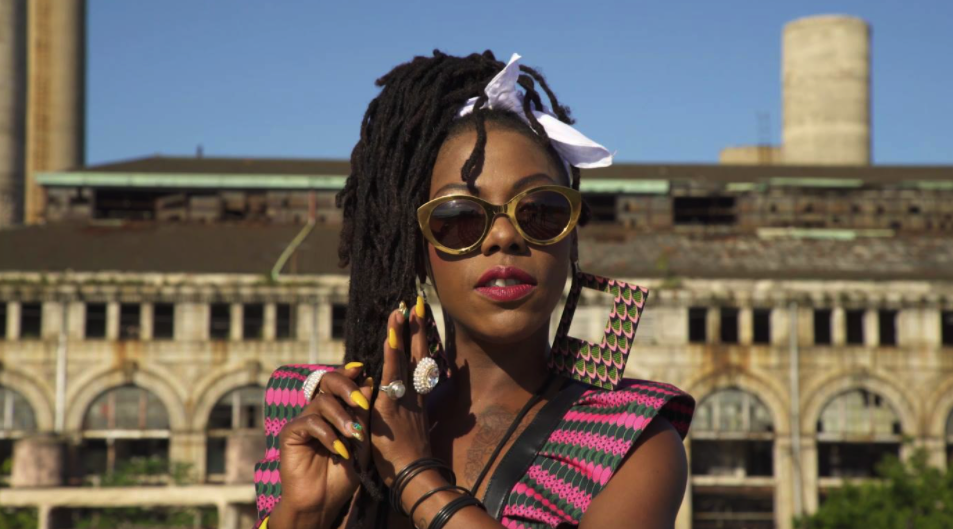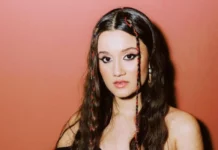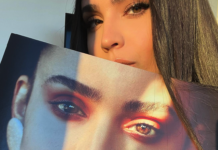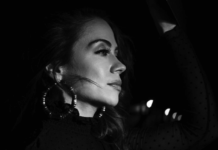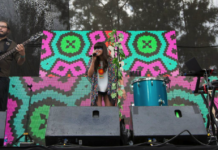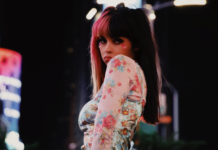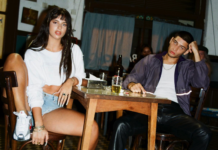Have you ever heard a song, and just within a few seconds, you already know you’re going to love it forever? Well, that was my exact reaction when I first heard La Dame Blanche’s ‘Yo Quiero Trabajar’, from her second album ‘2’. Ever since that day, I’ve been following the interesting career of this groundbreaking Afro-Cuban rapper. La Dame Blanche’s music could be a genre on its own, she manages to mix traditional Caribbean music with hip hop, electronic music, and even flute sounds, and she does it flawlessly.
Being the Buena Vista Social Club Orchestra Director’s daughter, it was only natural for Yaite Ramos – aka La Dame Blanche to grow up surrounded by music. Yaite didn’t have to try so hard to make a name on her own, this singer, composer, and professional flutist has explored and perfected her own style through 4 albums. Her latest LP, ‘Ella’, is the most recent example of Yaite’s creativity and overwhelming range.
Inspired in the beautiful complexity of womanhood, La Dame Blanche dedicated each of the 10 songs on ‘Ella’ to a different woman or a different part of herself. With this in mind, it is no surprise every single track has a unique sound without sounding incoherent as a whole.
La Dame Blanche opens her album with ‘La Creyente,’ and we can immediately hear her flute to introduce a political rap about race and power dynamics. Right after this powerful track, La Dame Blanche starts signing in broken English on ‘La Americana’. “Ya yo sé decir modafoka” (I learned how to say motherfucker) Blanche raps over a violent trap base full of explosion samples and adlibs.
There are moments on ‘Ella’ when we’re able to hear Yaite’s most vulnerable side. In ‘La Incondicional’, the singer talks about trying to love someone’s imperfections. This bolero-inspired song features delicate lyrics like “hicimos como si nada pero la hierba y el fuego no se llevaban” (We pretended nothing was going on but weed and fire don’t get along)
‘La Mulata’ is one of the most danceable and attractive tracks on the album. La Dame Blanche sings over a progressive-reggaeton beat to celebrate the union of women from every race.
Politics and race have always been an important part of Yaita’s life. As an Afro-cuban immigrant living between Paris and her hometown, Rio Del Pinar, it is almost impossible for her to stay quiet about social injustice.
Blanche’s music is often full of social commentary, showing her desire for an equal word. In ‘La Exiliada’, we can hear La Dame Blanche switching between Spanish and French naturally, she manages to critique France’s Prime Minister with this witty bar: “Dice Macron que todo está bien que todo está bueno, pero tiene al pueblo francés comiendo huevo” (Macron says everything’s alright, everything’s okay, but french people are eating just eggs). To close the album, La Dame Blanche decided to put a Cuban-inspired song at the very end. ‘La Maltratada’ mixes typical drums and trumpets from ‘Son cubano’ with female-empowering lyrics against domestic violence. This way, Yaite reconnects with the music she grew up with. You can’t help but feel like you’ve been in a huge music festival, and now you’re back on your Abuela’s house listening to her good old classics. This trip is nothing else than Yaite’s life journey and multifaceted femininity condensed into 10 songs.
Yaite Ramos might be the most prolific female rapper from Latin-America. In ‘Ella’, she showed how she could shine in so many genres without losing coherence in her speech. La Dame Blanche’s aggressive flow, smooth vocals, and eclectic blend of genres are just some qualities that could make her a powerhouse in the industry. However, it seems some of the biggest music reviewers, such as Pitchfork or The Guardian, haven’t heard about her yet.
‘Ella’ manages to achieve its premise perfectly. You can hear the immigrant woman, the sensitive woman, the activist one, the one who loves, the one who grieves, the one who embraces her sexuality, her imperfections, and her roots.

